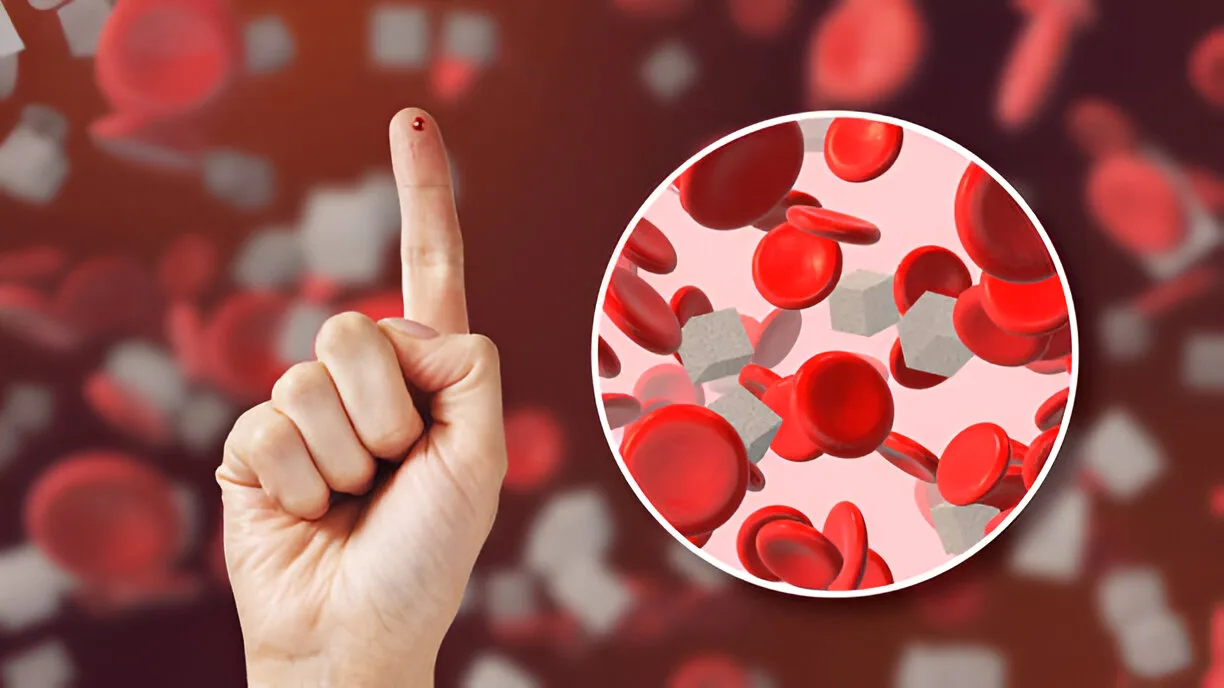Cardiac Care

Your blood sugar level is directly related to your heart health and can impact how the organ functions. With changes in blood sugar, heart rate might also increase or decrease. Hence, maintaining the right blood sugar level is important. Abnormal blood sugar can also affect the nervous system, cause stress and even contribute to cardiovascular complications.
This blog covers all you need to know about the link between blood sugar levels and heart rate and how it can help you lead a healthier life.
Blood sugar is described as the level of glucose in the blood. This glucose is derived from the food and drinks that we consume, which is also the main source of our energy. The blood sugar level generally fluctuates throughout the day. People with diabetes are more prone to experience fluctuations in blood glucose.
The amount of blood glucose in the body is important as it can impact various factors of our health and ultimately affect our lifestyle and overall well-being. Blood sugar levels being too high or too low may be an indication of an underlying health issue.
High blood sugar levels lead to hyperglycemia, and low blood sugar levels cause hypoglycemia.
Hyperglycemia means the blood glucose levels in the body are higher than normal. It is characterised by a fasting blood glucose level exceeding 125 mg/dL.
This is common among people with diabetes, but it can happen otherwise. This occurs when the body can’t generate or use insulin properly.
Fatigue, Nausea, Dizziness, Increased Thirst and Frequent Urination.
Stress, Dehydration, Overeating, Lack of Exercise and Underlying Diseases.
When blood sugar is high (hyperglycemia), it can lead to increased sympathetic nervous system activity. This results in an elevated heart rate as the body tries to handle the excess sugar. If high blood sugar is in a chronic state, it can damage blood vessels and nerves, contributing to heart problems like high blood pressure and heart disease.
Hypoglycemia means when blood sugar levels in the body decrease lower than normal, below 70 mg/dL.
This is a harmful condition and may require immediate action.
Fatigue, Headache, Sweating, Anxiety, Dizziness, Shaking, Hunger, Numbness on the Skin and Increased Heart Rate.
Diabetes, Hot and Humid Weather, Menstruation, Puberty, Higher Altitudes, Malnutrition, Alcohol Overdose and more.
Conversely, when blood sugar drops too low (hypoglycemia), the body perceives this as a stress situation. In response, the adrenal glands release adrenaline (epinephrine), which can cause an increased heart rate as part of the “fight or flight” response. Hypoglycemia self-care becomes a necessity for maintaining a healthy heart rate. Emergency Hypoglycemia medication may involve high-sugar drinks, glucose tablets, food and IV infusion.
People with diabetes, particularly those with poorly controlled blood sugar, are at higher risk of developing heart disease. The combination of high blood sugar, high cholesterol, and high blood pressure can increase the strain on the heart and lead to a higher resting heart rate.
Blood sugar imbalances can influence the autonomic nervous system. This system is responsible for controlling heart rate. Consistently unstable blood sugar can lead to abnormal heart rhythm, also known as arrhythmia, or contribute to cardiovascular complications.
The sympathetic nervous system (SNS) is a part of the autonomic nervous system, responsible for the body’s “fight or flight” response. It prepares the body for action during stressful or emergency situations. It does so by increasing heart rate, dilating the airways, and redirecting the blood flow to essential organs, among other things. The SNS helps the body respond quickly to danger or stress.
Adrenaline, also known as epinephrine, is a hormone and neurotransmitter produced by the adrenal glands. It plays a central role in the body’s fight-or-flight response.
When activated, the sympathetic nervous stimulates the release of adrenaline into the bloodstream, which causes a variety of physiological changes such as:
Together, the SNS and adrenaline work to help the body respond to stress and physical exertion by enhancing alertness, focus, and energy availability.

At Atrius Cardiac Care, our team of expert cardiologists is dedicated to helping you achieve and maintain optimal heart health. We provide personalised guidance on managing blood sugar levels and other critical factors to keep your heart healthy. With years of experience and a patient-focused approach, we have positively transformed countless lives.
Take the first step toward a healthier heart—book your appointment with Atrius Cardiac Care today.